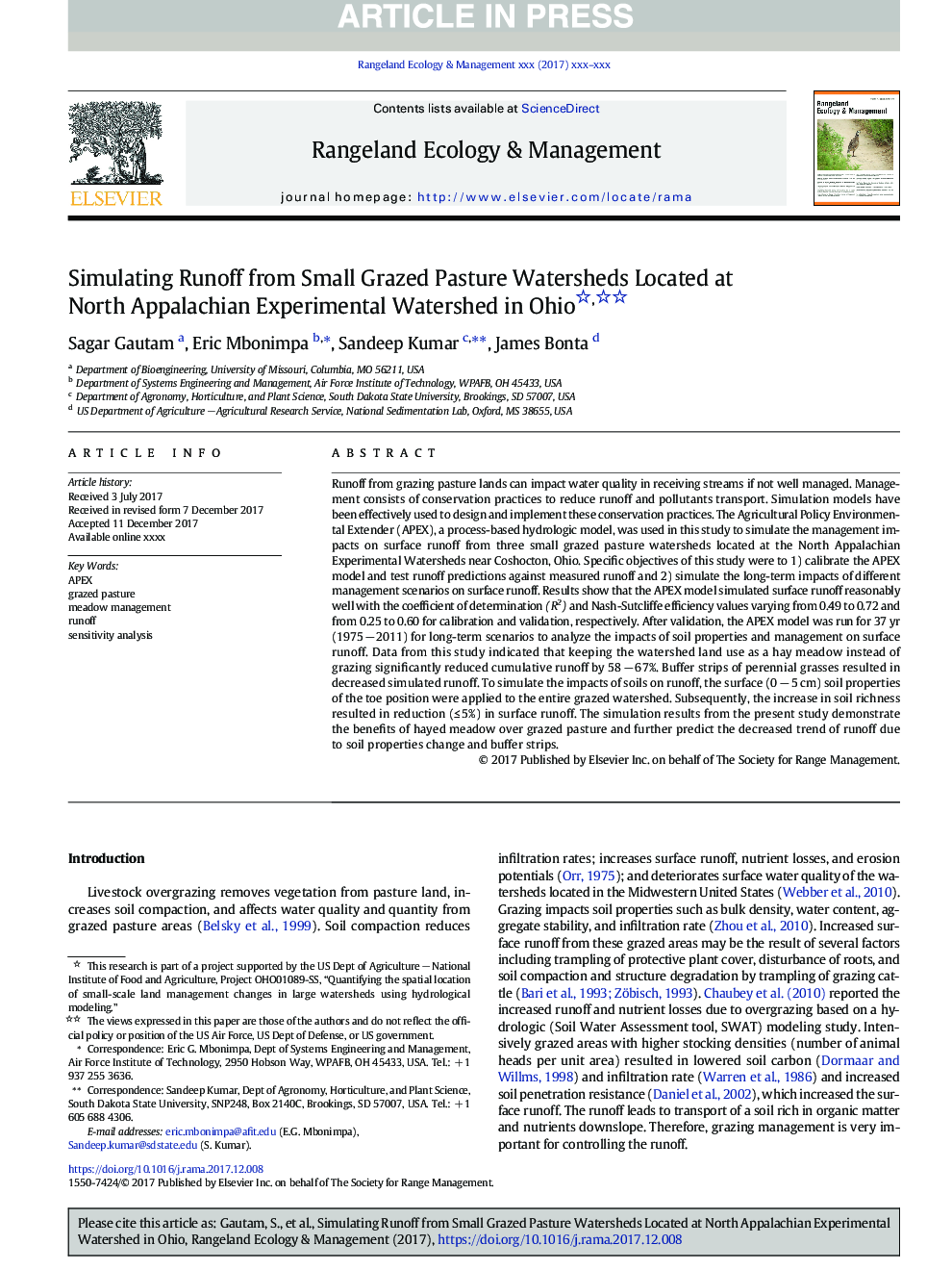| Article ID | Journal | Published Year | Pages | File Type |
|---|---|---|---|---|
| 8849608 | Rangeland Ecology & Management | 2018 | 7 Pages |
Abstract
Runoff from grazing pasture lands can impact water quality in receiving streams if not well managed. Management consists of conservation practices to reduce runoff and pollutants transport. Simulation models have been effectively used to design and implement these conservation practices. The Agricultural Policy Environmental Extender (APEX), a process-based hydrologic model, was used in this study to simulate the management impacts on surface runoff from three small grazed pasture watersheds located at the North Appalachian Experimental Watersheds near Coshocton, Ohio. Specific objectives of this study were to 1) calibrate the APEX model and test runoff predictions against measured runoff and 2) simulate the long-term impacts of different management scenarios on surface runoff. Results show that the APEX model simulated surface runoff reasonably well with the coefficient of determination (R2) and Nash-Sutcliffe efficiency values varying from 0.49 to 0.72 and from 0.25 to 0.60 for calibration and validation, respectively. After validation, the APEX model was run for 37 yr (1975 â 2011) for long-term scenarios to analyze the impacts of soil properties and management on surface runoff. Data from this study indicated that keeping the watershed land use as a hay meadow instead of grazing significantly reduced cumulative runoff by 58 â 67%. Buffer strips of perennial grasses resulted in decreased simulated runoff. To simulate the impacts of soils on runoff, the surface (0 â 5 cm) soil properties of the toe position were applied to the entire grazed watershed. Subsequently, the increase in soil richness resulted in reduction (â¤Â 5%) in surface runoff. The simulation results from the present study demonstrate the benefits of hayed meadow over grazed pasture and further predict the decreased trend of runoff due to soil properties change and buffer strips.
Related Topics
Life Sciences
Agricultural and Biological Sciences
Agricultural and Biological Sciences (General)
Authors
Sagar Gautam, Eric Mbonimpa, Sandeep Kumar, James Bonta,
